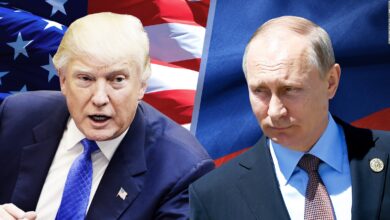
BY Jonathan Freedland – “The Gurdian”:
The big bet is that cuts in interest rates boost growth. In the meantime, small but meaningful gestures could help soothe the public mood
It’s hard to say that the honeymoon is over, because it never really began. You can’t blame Labour for that: it warned voters before the election not to get their hopes up, and it has stood firm against the menace of optimism ever since. Keir Starmer’s idea of whispering sweet nothings into the nation’s ear is to tell them that, “Frankly things will get worse” before they get better, that pain is on the way. Just this week, he braced the TUC for “tough decisions on the horizon”. And they say romance is dead.
The new government’s deeds have matched its words. This week, Labour whipped its MPs to vote for the scrapping of the winter fuel allowance for all but the poorest pensioners, not long after those same MPs were barred from lifting the two-child limit on benefits. It came just as the health secretary gave a gloomy prognosis of the state of the NHS. None of this is filling the country with enthusiasm. According to YouGov, just 19% approve of the government’s record so far, dwarfed by the 55% who disapprove.
And yet, there is a way it could all work out, one that might make Labour’s dour start seem less like a mistake than the first stage of a cunning plan. This, admittedly hopeful, view arises from a series of conversations – not, I stress, with people in politics, but rather with those rooted in the economy and finance. If they’re right, this plan will not bear fruit immediately; there will need to be a strategy to tide Labour over in the interim. But there might just be a solution to that too.
The starting point is the brief, catastrophic premiership of Liz Truss. Unexpectedly but clearly, Labour has decided that Truss was not wrong about everything. She was right that the key that unlocks all else is economic growth. But while she was right about the ends, she was disastrously wrong about the means and the time.
Her chosen means was tax cuts, an article of faith on the right. But her timing was awful. She made her move in the autumn of 2022, a period of rising interest rates and high global inflation. Tax cuts mean more money in people’s pockets, more demand, higher prices: inflation, already high, would get even higher. Obliged to keep inflation down, the Bank of England had no choice but to step in and increase interest rates. That didn’t just whack homeowners on a mortgage, it also increased the money the government had to shell out to service the national debt – and, naturally, high interest rates don’t boost growth, they hurt it. It was a negative spiral.
Labour also wants growth, but its chosen means is lower interest rates. That means creating the conditions in which the Bank will feel able to reduce them. On this, Rachel Reeves has got the timing just right. Unlike Truss, acting in a period of high inflation, Reeves has arrived in office just when the trend is in the opposite direction.
Still, the surest way to nudge central bankers into lower interest rates is fiscal tightening: spending less, taxing more. The latter is partly taken care of by a large, if stealthy, set of tax rises that Reeves inherits – namely, the freezing of income tax thresholds, thereby dragging more people into higher brackets, who then pay more – and partly by the tax increases that seem likely in next month’s budget, whether on capital gains, inheritance or pension contributions.
But spending is also part of the equation. That’s where the two-child and winter fuel decisions come in. Reeves is signalling, to the Bank of England but also to the markets, that she is not going to be profligate, that she will not be the Labour chancellor of caricature, bullied by her party’s left into wild spending. It’s partly a performance, the same iron chancellor routine adopted by Gordon Brown in 1997, when he broke Labour hearts on single-parent benefits and stuck to his promise to stay within Tory spending limits for two years. Reeves’ goal is similarly to reassure the nine members of the Bank of England’s monetary policy committee that it’s safe to reduce interest rates with no fear of galloping inflation.
If she succeeds, and interest rates come down, lots of good things start to happen. Mortgage payments come down, so consumers have more to spend on what they want. The servicing of government debt costs less, so the government has more to spend on public services. Investment becomes attractive, so the economy begins to grow. That brings in more tax revenue, giving the government even more to spend, whether on schools, hospitals or any of the myriad services crying out for cash after a 14-year starvation diet. It’s a positive spiral.
There is an extra prize in sight too. Britain with low interest rates, governed by a new, ostentatiously sensible government with an enormous parliamentary majority, will look like an island of political stability, especially as France and Germany contend with a surging far right. That will attract overseas investment, previously frightened off by the Tory follies of the Brexit years, which means yet more money in Treasury coffers available for public spending.
But there are two big problems. The first is that this process takes time, perhaps a year according to those who know the way bond markets and interest-rate setters operate. The second is that if you are only playing Scrooge now so that you can be Santa later, you cannot say out loud that that is what you are doing. The markets are all about confidence. They had no confidence in Truss, so they panicked. They had confidence in Brown, so gave him room to spend big. Reeves needs them to believe she is as stingy, heartless and unbending as her worst enemies say she is.
The risk, however, is that, until rates come down and the economy takes off, the public’s impatience will congeal first into disappointment and then disillusion. Some will say that need not matter, that the New Labour precedent suggests that governments with iron chancellors get re-elected. Except Labour won in July with just 34% of the vote. The latest polling has the party at 29%. On the eve of its first conference in power, by contrast, the numbers for Brown and Tony Blair were in the stratosphere.
What, then, can Starmer and Reeves do in this interim period, as they wait for a serious fall in interest rates and all that should follow? Here memories of 1997 can be useful. When it was wearing the straitjacket of Tory spending limits, unable to splash the cash, Labour found cost-free ways to demonstrate that the country was under new management. It was three months in, when, to take one example, then home secretary Jack Straw announced an inquiry into the murder of Stephen Lawrence. Similarly, the Labour of 2024 should be looking for ways to show that progress is possible that won’t trouble the exchequer. And so it was not just Brussels that was disappointed by Starmer’s rejection last month of a proposal that Britain rejoin the EU’s Erasmus+ scheme, which allows young people to study abroad.
That would have been just the kind of bright, hopeful gesture that would not have broken the bank, but would have signalled that Britain had a new government and that better times were on the way. If everything goes to plan, the economic lift will come. In the meantime, and even if there can be no honeymoon, it wouldn’t hurt for Labour to give the country a small reminder why, back on that summer’s day in July, it said, “I do.”





